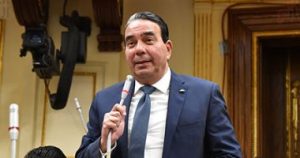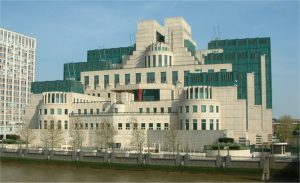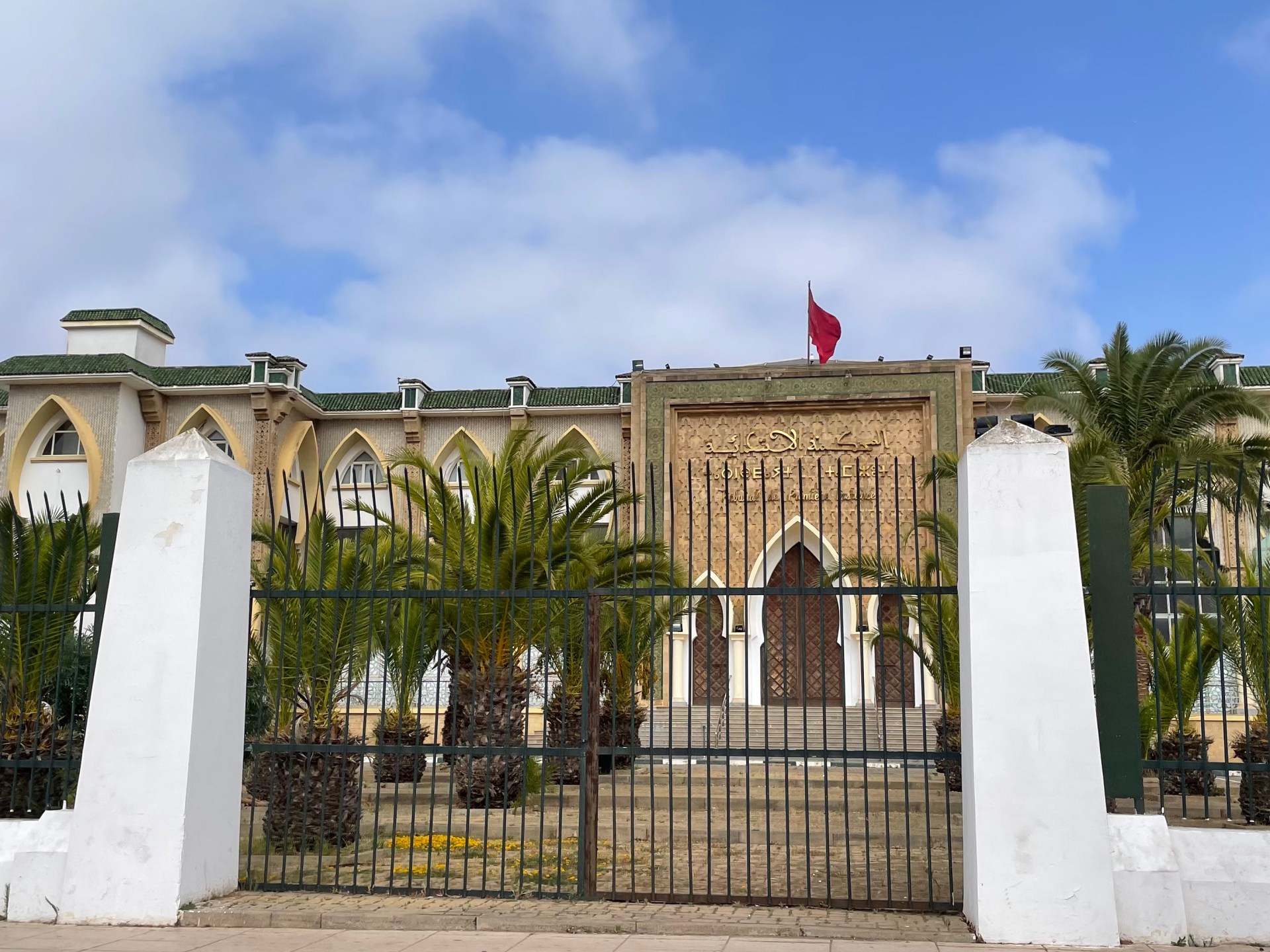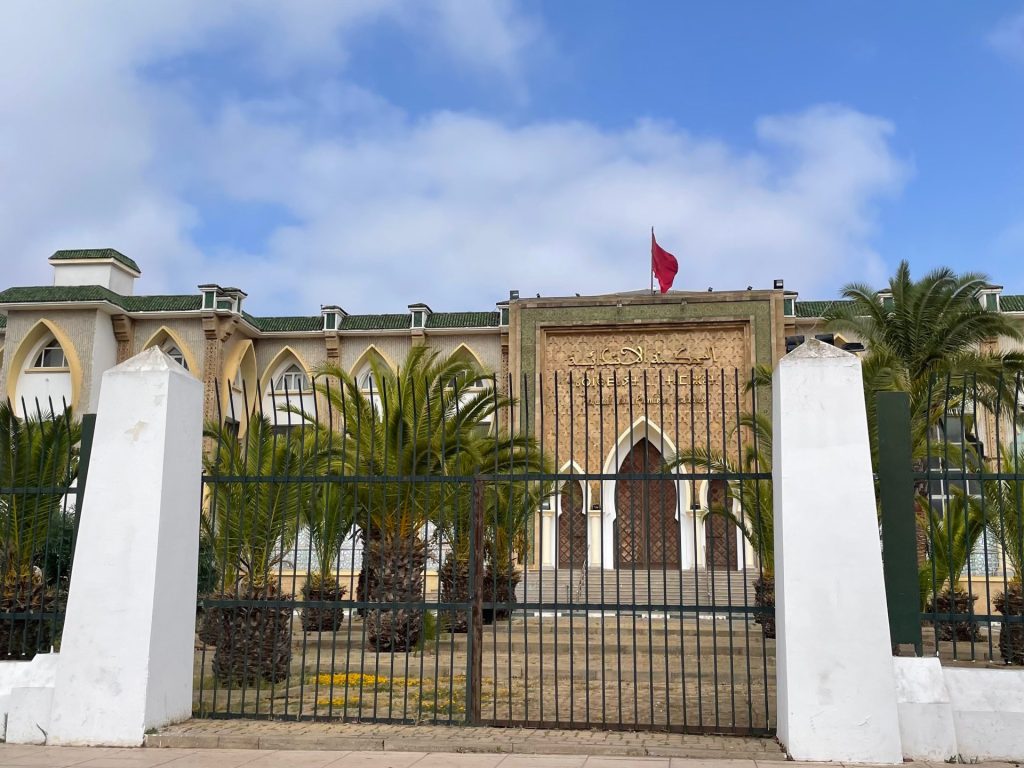Rabat – Avec l’entrée en vigueur de la loi sur les peines alternatives dans les tribunaux marocains le 22 août 2025, les tribunaux ont commencé à rendre des jugements transformant les peines de prison dans les affaires de délits en peines alternatives. Cette mesure vise à réduire la surpopulation carcérale et à promouvoir la justice réparatrice.
La loi a été adoptée un an après son approbation par la Chambre des représentants le 24 juin de l’année précédente et publiée au Bulletin officiel le 22 août. Cependant, sa mise en œuvre effective a été retardée jusqu’à la publication des décrets et arrêtés d’application complémentaires.
La loi définit les peines alternatives comme “celles prononcées en remplacement des peines privatives de liberté dans les délits dont la peine ne dépasse pas cinq ans de prison ferme”.
Cependant, la loi exclut les condamnés dans les affaires liées à : la sécurité de l’État, le terrorisme, le détournement de fonds, la trahison, la corruption, l’abus de pouvoir, la dilapidation des deniers publics, le blanchiment d’argent, les crimes militaires, le trafic international de drogues, de substances psychotropes et d’organes humains, ainsi que l’exploitation sexuelle des mineurs ou des personnes en situation de handicap.
Avant la mise en œuvre, le Conseil supérieur de l’autorité judiciaire a émis une circulaire adressée aux présidents des tribunaux visant à unifier les normes et procédures, en mettant l’accent sur les aspects pratiques à considérer lors de la phase initiale.
La circulaire a souligné la nécessité de désigner un juge spécialisé en peines alternatives dans chaque tribunal pour coordonner avec les autres intervenants, notamment l’administration pénitentiaire. Les responsables judiciaires ont également été invités à signaler toute difficulté pratique au conseil pour étude et résolution.
Nawfal Al-Baamri, président de l’Organisation marocaine des droits de l’homme et avocat au barreau de Tétouan, a déclaré à Al Jazeera Net que la loi sur les peines alternatives est l’une des lois les plus importantes ratifiées par le parlement. Il a expliqué que les peines comprennent : le bracelet électronique, les travaux d’intérêt général et les amendes journalières en remplacement des jours de prison.
Il a ajouté que la publication de la loi simultanément avec des notes d’orientation pour les juges a donné un signal positif sur la préparation du système judiciaire à sa mise en œuvre rapide, ce qui s’est reflété dans la satisfaction des citoyens qui ont constaté une évolution dans la nature des peines tout en préservant la liberté comme principe.
Pour sa part, Mustafa Al-Nawi, avocat au barreau de Casablanca, a déclaré à Al Jazeera Net que le système des peines alternatives, qu’il préfère appeler “alternatives à la peine et à la détention”, représente une étape importante dans le parcours de la justice pénale au royaume, malgré son retard par rapport à la réforme globale du droit pénal. Al-Nawi a estimé que la loi reflète la valorisation de la liberté et de la dignité.
Abdelilah Al-Khodari, président du Centre marocain des droits de l’homme, a déclaré à Al Jazeera Net que la loi constitue une étape majeure dans la réforme de la justice pénale, notant que son succès dépend de la capacité des différents acteurs à surmonter les défis réels et objectifs.
Au cours de la première semaine de mise en œuvre, les tribunaux marocains ont rendu des jugements transformant les peines de prison en peines alternatives dans 44 dossiers impliquant 45 accusés. Les données obtenues par Al Jazeera Net ont montré que le tribunal de Tanger était en tête avec 17 affaires, suivi du tribunal de Marrakech avec 10, Taza avec 4, Tétouan avec 3, Souk Sebt et Ouled Nemma avec 2 affaires chacun, tandis que les tribunaux d’Agadir, Tinghir, Chefchaouen, Ouezzane, Beni Mellal, Fquih Ben Salah, Laâyoune et Dakhla ont enregistré chacun un dossier.
En ce qui concerne les types de peines alternatives prononcées pendant cette période, elles se sont réparties comme suit :
Les affaires concernées par les peines alternatives comprenaient : abus de confiance, faux, violence contre les ascendants, coups et blessures avec arme, consommation de drogues, ivresse publique, violence contre les femmes, détention d’armes, escroquerie et outrage à fonctionnaire public. Les tribunaux ont informé les condamnés que tout manquement à l’exécution des obligations entraînerait l’application de la peine de prison initiale.
Mustafa Al-Nawi a souligné que la bonne application de la loi dépend des juges, en particulier des juges de jugement et des juges d’exécution des peines, avec la disponibilité des ressources et moyens nécessaires. Il a également insisté sur le rôle des avocats et des organisations de la société civile dans la sensibilisation, l’organisation de programmes de formation, le suivi du travail judiciaire et la production de rapports analytiques sur les peines alternatives.
Nawfal Al-Baamri a indiqué que l’évaluation précoce ne peut être exhaustive, insistant sur le fait que la pratique révélera des problèmes juridiques, culturels et objectifs, notamment la manière dont les parties au litige traitent les peines alternatives, la garantie de leurs droits matériels et moraux, et le maintien de l’équilibre entre les différentes parties devant la justice pour renforcer la sécurité judiciaire et l’équité.
Abdelilah Al-Khodari a également souligné les défis logistiques et humains, tels que la nécessité de fournir des centres de surveillance électronique, du personnel qualifié pour superviser les services publics et des juges capables de suivre efficacement l’exécution.
Il a confirmé que le succès des peines alternatives dépend des programmes de réhabilitation, de formation et d’intégration professionnelle et sociale des condamnés, en réalisant un équilibre entre la dissuasion et la protection de la société d’une part, et la réforme et la réinsertion d’autre part.














Recommended for you
مدينة المعارض تنجز نحو 80% من استعداداتها لانطلاق معرض دمشق الدولي
طالب الرفاعى يؤرخ لتراث الفن الكويتى فى "دوخى.. تقاسيم الصَبا"
تقديم طلبات القبول الموحد الثلاثاء و640 طالبا سيتم قبولهم في الطب
البريد المصري: لدينا أكثر من 10 ملايين عميل في حساب التوفير.. ونوفر عوائد يومية وشهرية وسنوية
سمو الشيخ عيسى بن سلمان بن حمد آل خليفة يستقبل سفير الولايات المتحدة الأمريكية لدى مملكة البحرين
الجغبير: القطاع الصناعي يقود النمو الاقتصادي